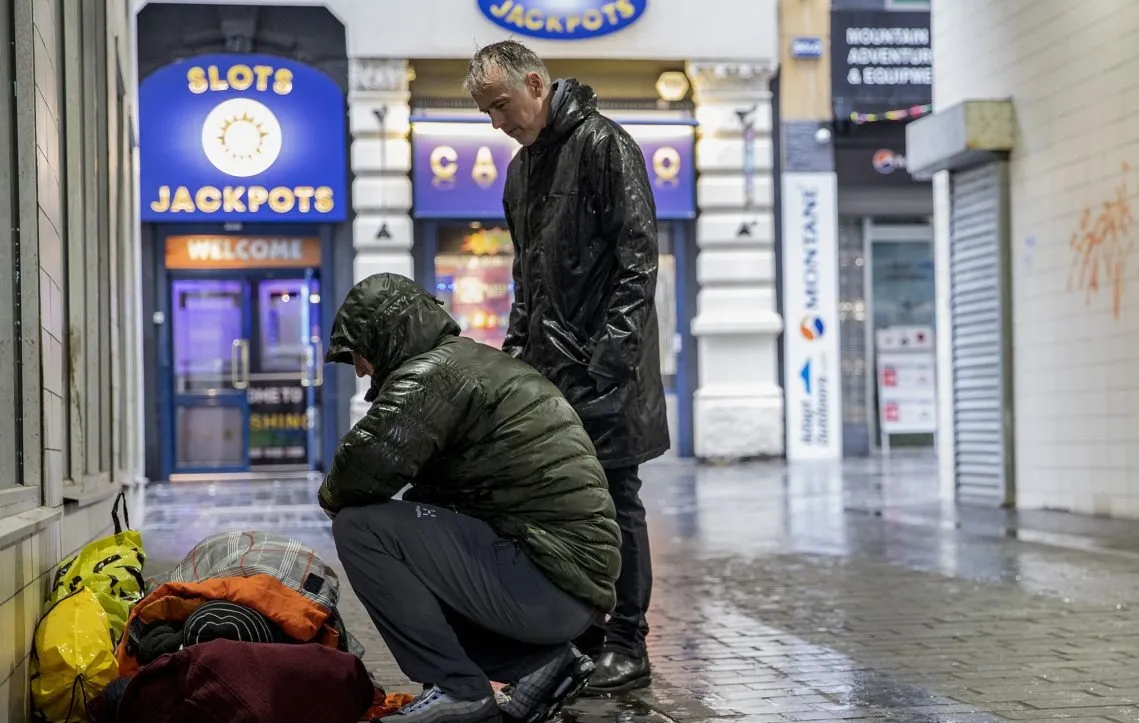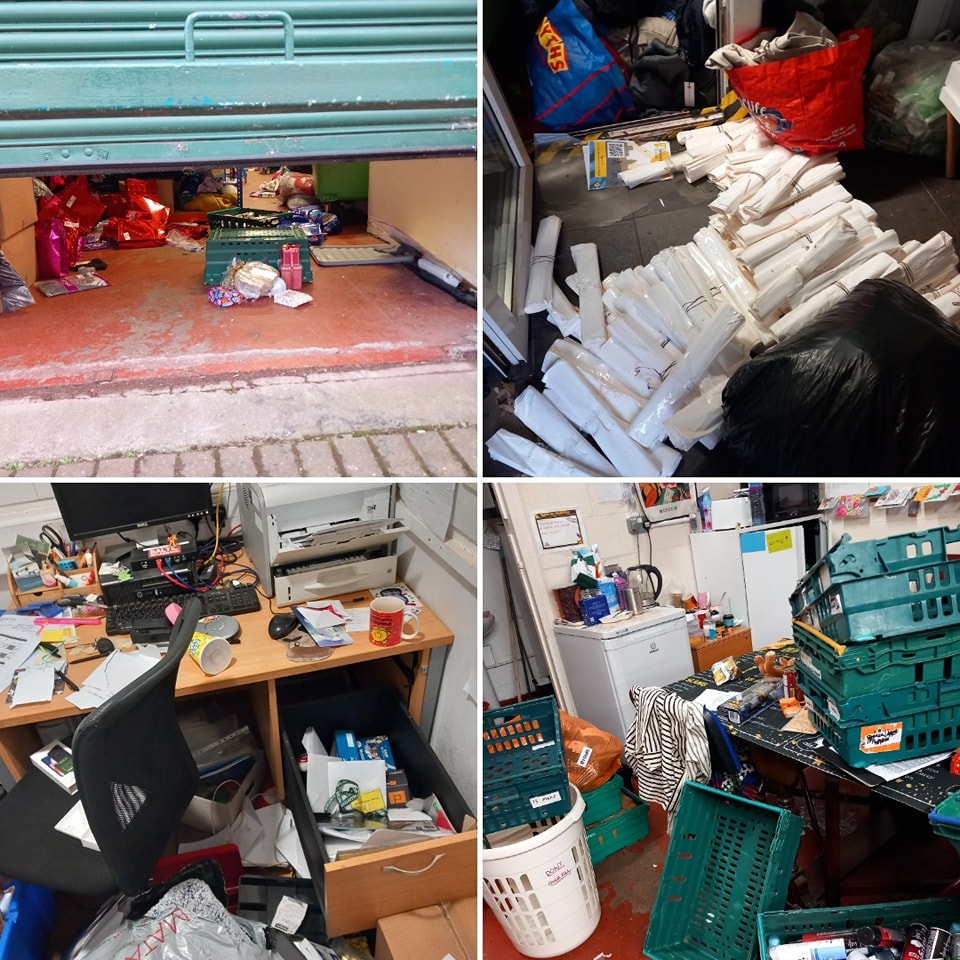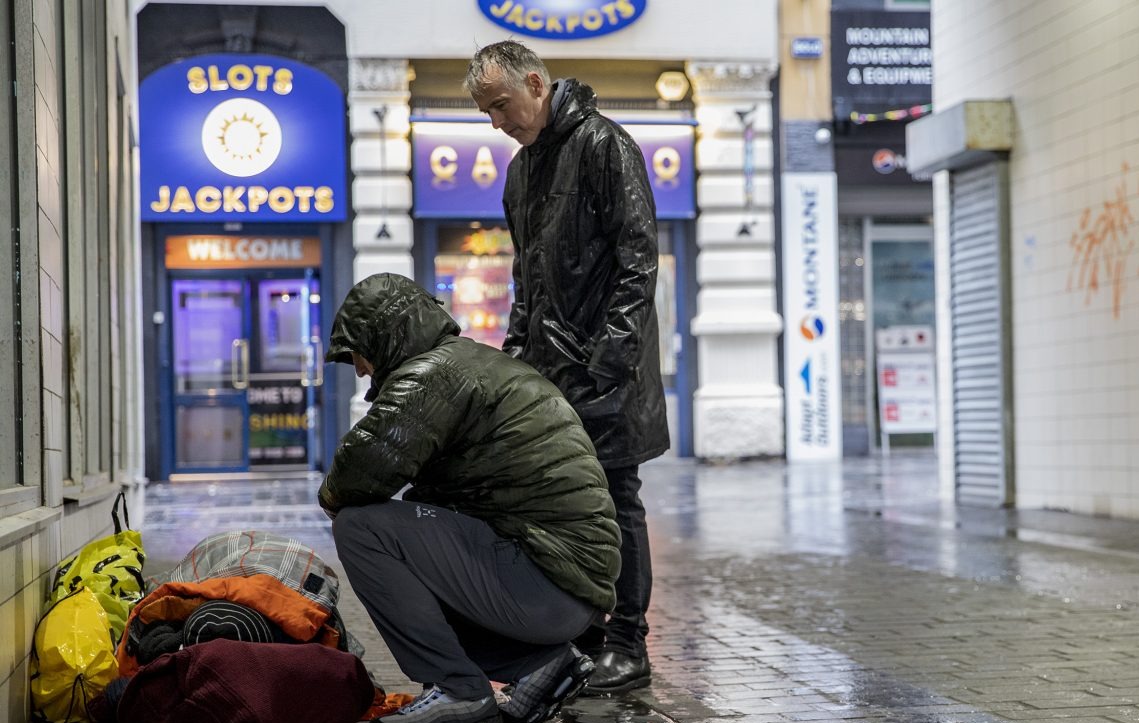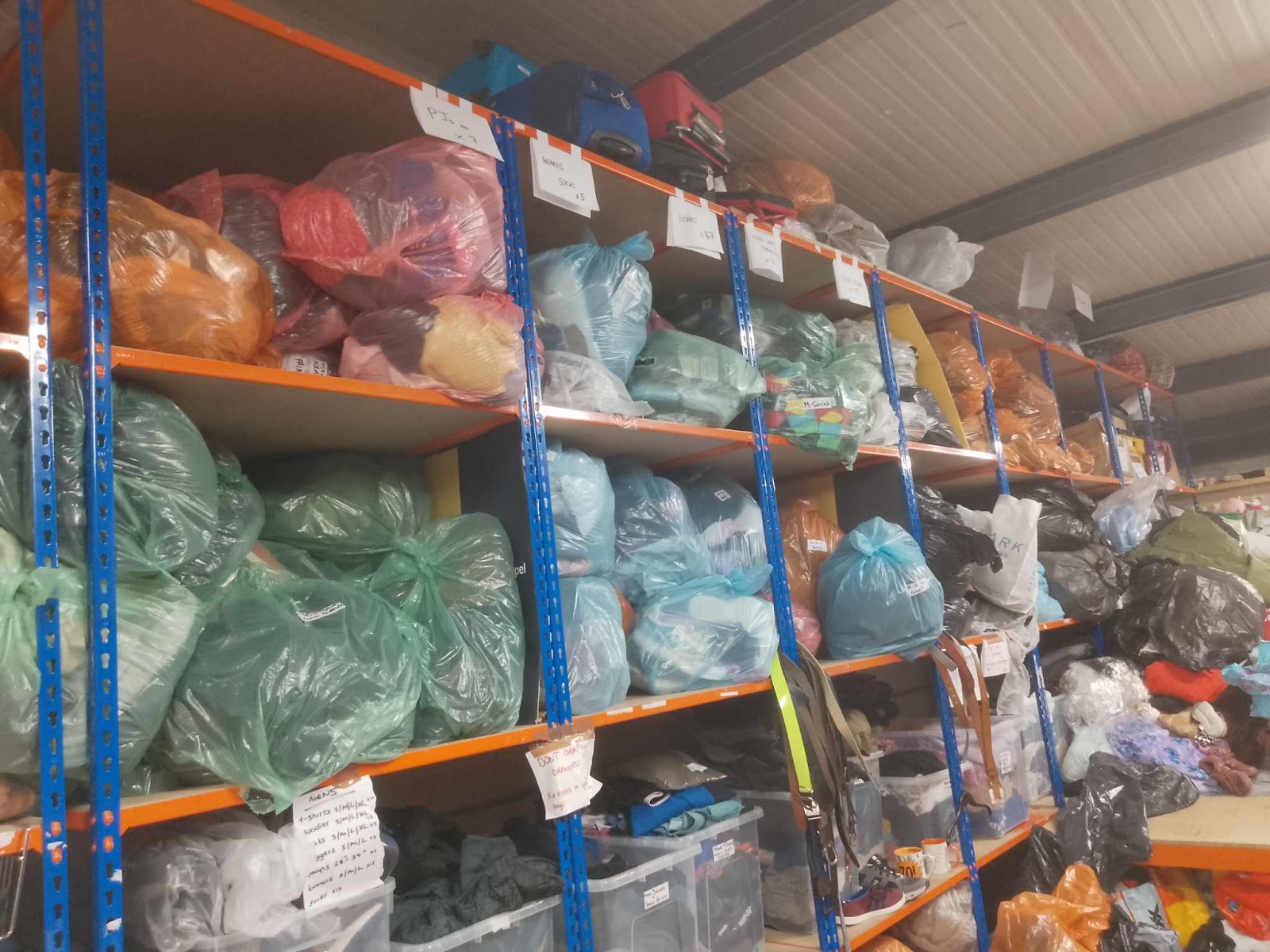Robbed right before Christmas: A winter’s morning with the Whitechapel Centre

The homelessness charity celebrates its 50th birthday next year. But it needs help more than ever
🎶It's beginning to look a lot like... you need to sort out your Christmas presents pronto 🎶
Don't worry, your old friend The Post is here to help. We're offering a whopping 50% discount on gifted annual memberships (just £49.90) to make your Christmas shopping easier, or you can get them a three month (£19.90) or six month (£39.90) option - and give us extra support at the same time!
Not only that but the clever computer people have created a way for you to automatically send your giftee a nice message on Christmas day as their subscription starts (perhaps: "you're such an interesting person, you're bound to love the huge range of fascinating articles you'll get over the next year...")
As Hatton Garden becomes Vauxhall Road, the office blocks and Victorian buildings thin to one-storey warehouses and closed-down corner pubs: poor bulwarks against late December winds whipping in off the docks. By the time I reach the Whitechapel Centre’s donation drop-off point on Blackstock Street, I’m grateful for a roof, four walls, and a cup of tea.
“We were broken into last night, I’m afraid,” says David Roper, Whitechapel’s volunteer manager, as he leads me past intimidating hillsides of clothing donations.
Steph, another organiser, shows me a small pile of Nivea gift packs – all that’s left from what had been a plastic pallet mountain of toiletry essentials, which could have lasted Whitechapel’s clients until next Christmas. “And they made off with all the chocolate that we buy in for our regular food parcels, too,” she says with a cheerful weariness. “Over £250 worth. Not to mention the Christmas chocolate. And my work phone, too!”
“The only saving grace is that the IT equipment is so ancient, even the thieves didn’t want it,” says Ruth, Whitechapel’s fundraising manager, as she shows me the ransacked back office still housing a functioning computer. “We think they got £30 in petty cash, but that’s all.”

It’s never a good time for a charity to be robbed, but this time of year is particularly egregious. The Whitechapel Centre, started in 1975 to meet the needs of Liverpool’s homeless, is especially busy at Christmas time, partially due to severe weather, but also thanks to people donating from their winter surplus. Tidying up after a break-in is just another chore amidst gathering pressures.
“4,800 individuals came through our doors last year,” David Carter, Whitechapel’s chief executive, tells me. That’s not a rounded-up figure, either. “Which was a 10% increase on the year before. Since April 2024, we’ve seen that increase continue.”
If you're enjoying today's piece and want to read more stories like this, then please subscribe to The Post. We're an award-winning email newsletter that sends you heartfelt features, proper local journalism and peerless writing about life in Merseyside. 35,000 people have already joined our mailing list. Hit that button below to join up for free.
David is keen to stress it’s not a linear rise. “Homelessness means different things to different people: those who are sofa-surfing, people who are in supported accommodation or hostels. But also people who are on the streets.”
Rough sleepers, David tells me, represent the biggest increase: a 33% rise, now almost a quarter of the 4,800 cases. “In a single month, we counted 192 people bedding down on the streets in Liverpool. That’s a phenomenal number, isn’t it?”
Although the gender breakdown of homeless people in Liverpool as a whole – 70% male, 30% female – remains static, David says Whitechapel has also seen a worrying increase in women sleeping rough. Among this cohort, substance abuse is an overwhelming factor, as well as escaping from domestic violence.
I can’t help but think of the chill that crept into my winter clothing on the way here, still not completely dispelled by a hot drink. Glancing up at the bags of sweatshirts, coats, and scarves, it’s difficult not to be at once grateful for people’s generosity and angry that such measures are necessary in the world’s sixth largest economy.

“The biggest challenge for us this year, though, is the continuing housing crisis,” David continues. “As an organisation, we’re only as good as the solutions we can find for people. There’s an absolute dearth of accommodation – of social housing, rented accommodation… any accommodation. That means people are staying with us longer.”
Having worked for Whitechapel for 28 years, does David get disheartened when he sees the figures rise? “Everybody who comes here comes here for a reason. Clients come here because they have needs. Staff work in this sector because they want to help those in need. And if you can’t [meet those needs], it is despairing.”
But it’s not all doom and gloom. “Sometimes you can’t prevent homelessness, but what you can do is guarantee a same-day solution.” David points to the No Second Night Out initiative, begun in 2016, that aimed to rapidly respond to any report of a rough sleeper with at least temporary accommodation so that they did not spend more than one night on the streets.

But the housing crisis has meant that initiative has been put under pressure – the centre can no longer guarantee someone need only suffer a single night of rough sleeping. Whitechapel can still offer advice, a street outreach programme, a hospital “inreach” project, a harm reduction service for men over 35 who wish to manage their alcohol usage, and their Pathways scheme aimed at tackling drug and alcohol dependency, which is delivered in partnership with Liverpool City Council and the NHS and addiction charity We Are With You. “Sometimes it’s not about just having the emergency provision available, but having the right provision, the right setting, and the right timing. That’s what we aspire to: to give people what they need, what they want. You want to match people to the right pathway at the right time.”
David tells me that 54% of their clients are drug or alcohol dependent, with a large crossover with the 61% dealing with mental health problems – often undiagnosed. Heroin is always a problem, but potentially so are nitazenes — synthetic opioids hundreds of times stronger.
Another concern in Liverpool is with the rise of synthetic cannabinoids like Spice, which again can exacerbate mental health crises. “There’s no methadone equivalent for Spice,” David explains, referring to the prescription substitute for heroin.
Just like the robbery, the Whitechapel staff take all this in their stride. David is even philosophical about the theft — to him, the fact someone would break into a charity’s distribution centre is just further demonstration of how desperate some people are. For almost fifty years, Whitechapel has dealt with worse, sometimes on a daily basis. Systemic problems, such as the housing crisis, drug dependency, and the byzantine access points for mental health provision on the NHS, present far more of a challenge to the staff’s professionalism, commitment, and organisational abilities. But they couldn’t do any of it without the help and generosity of everyday people, whether that comes in the form of donations or volunteers.
As I walk back to town, with adequate winter clothing and a warm destination, that mongrel emotion of gratitude and despair bites harder than the cold. I make my usual Christmastime pledge to do more or give more, the one that usually runs out when I’m skint about mid-January. GoFundMe recently named Liverpool the most generous city by donations per capita. Perhaps it shouldn’t have to be. But that selflessness is now more needed than ever.
If you would like to donate to The Whitechapel Centre, their website has a list of food, toiletries, bedding, household items, and pet supplies they need (as well as what they already have plenty of) here.
You can also donate to The Whitechapel Centre by card or set up a direct debit here.
If you’d like to become a volunteer, please visit here.
If you do see anyone rough-sleeping, you can help The Whitechapel Centre find accommodation for them by calling 0300 123 2041, emailing, or completing this online form.
As you can see from the tracker on our homepage, The Post is a little way off hitting our goal of 2,000 paying members before the end of the year.
So why not help us out? Because it's Christmas, we're offering a whopping 50% discount on gifted annual memberships (just £49.90), so you can get a three-month (£19.90) or six-month (£39.90) subscription from us in time for the New Year. Click here to grab that deal.
Or, if you'd rather pay month-by-month, then feel free to use our introductory offer to pay just £1 a week for the first three months. Click the button below for that.

Comments
Latest
A postcard from Colwyn Bay
Fountains, Ffrith and turning the place over
Just what is happening with Peak Cluster’s CO₂ pipeline?
A ‘stitch up’? How Wirral council bungled Big Heritage
Robbed right before Christmas: A winter’s morning with the Whitechapel Centre
The homelessness charity celebrates its 50th birthday next year. But it needs help more than ever